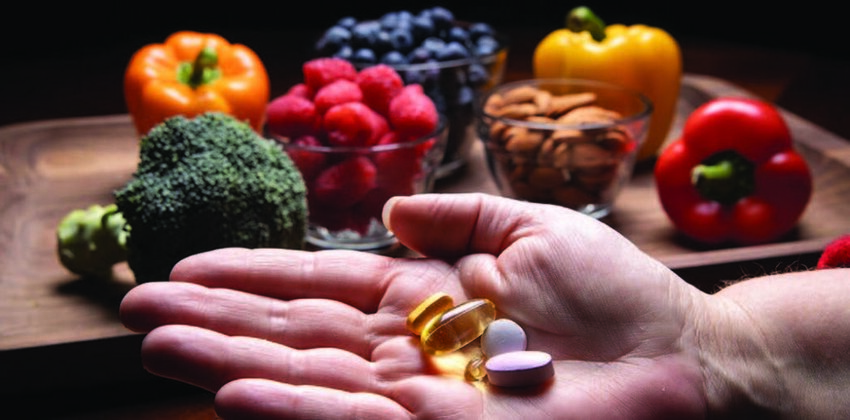 Taking supplements can be an insurance policy for getting needed minerals and vitamins but they should not be a substitute for fruits and vegetables.
Taking supplements can be an insurance policy for getting needed minerals and vitamins but they should not be a substitute for fruits and vegetables.Unfortunately, most people are unable to eat a diet that is rich in vitamins and minerals, often due to access. It is important to make sure you are ingesting the nutrients your body needs to function properly.
Many people do not realize that the vitamins and minerals they need primarily come from fruits and vegetables. These foods should be staples in any diet. I often see patients who tell me they love either fruits or vegetables. They eat the recommended fruits but not the vegetables or they will eat the recommended vegetables but not fruits.
Many of my patients are shocked when I inform them that they need to eat at least four to five servings of fruits and vegetables respectively each day. I often explain how these foods can be parceled out throughout the day to make it easy. For some, the thought of doing this is overwhelming.
There is no substitute for the natural vitamins and minerals that come directly from fruits and vegetables that should be eaten daily.
As for taking supplements, if a person’s diet is not filled with fruits and vegetables, the supplements can help ensure that one receives an adequate amount of vitamins and minerals. Take note, supplements are not substitutes for the real thing.
Supplements come with their own box of questions. The primary concern with these is the quality of the supplement. The United States and many countries in Europe have quality standards that products manufactured within their borders must adhere to. Supplements manufactured in China and India have no standards in which to adhere. So, what are you buying when the supplements have been manufactured there? The cost may be low but is the quality there? Look at the bottle to determine where the supplement was manufactured.
In addition, a supplement that is in the form of a hard tablet may not be as easily absorbed as one that is in a powder or in a pill form. Look for an expiration date to determine how long the supplement has been sitting on the shelf. Has the integrity of the supplement been insured by keeping it from extremes of heat or cold?
Some people take a multitude of supplements. Make sure you know what each supplement does and if it is right for you. People often do not realize that supplements can have positive and negative effects on your health. One that may work great for a friend may not be great for you. Ask your healthcare provider for guidance on this subject, especially if you are taking prescription medications. You certainly do not want any adverse interactions and that can happen.
Look for a high-potency multivitamin, and think of adding an Omega 3 fatty acid, to help promote brain and heart health, reduce inflammation, and protect against many chronic conditions. Remember, supplements are an addition to a great diet loaded with fruits and vegetables. After all, you are what you eat.
Dr. Veita Bland is a board-certified Greensboro physician and hypertension specialist. Dr. Bland’s radio show, “It’s a Matter of Your Health,” can be heard live on Wednesdays, 5:30 p.m. on N.C. A&T State University’s WNAA, 90.1 FM. Listeners may call in and ask questions. The show is replayed on Sirius 142 at 5 p.m. on Wed. Email Dr. Bland at ideas@blandclinicpa.com.